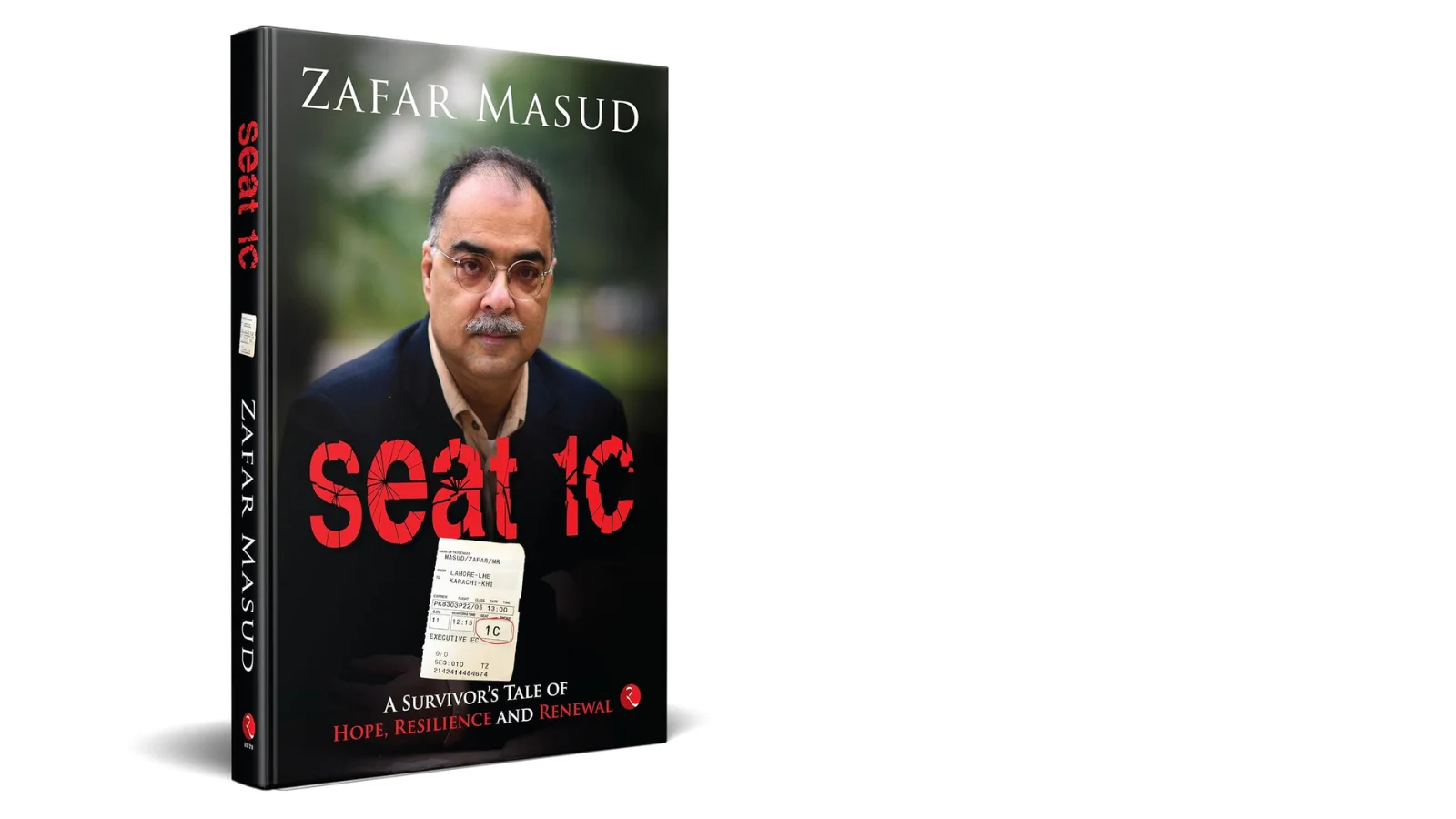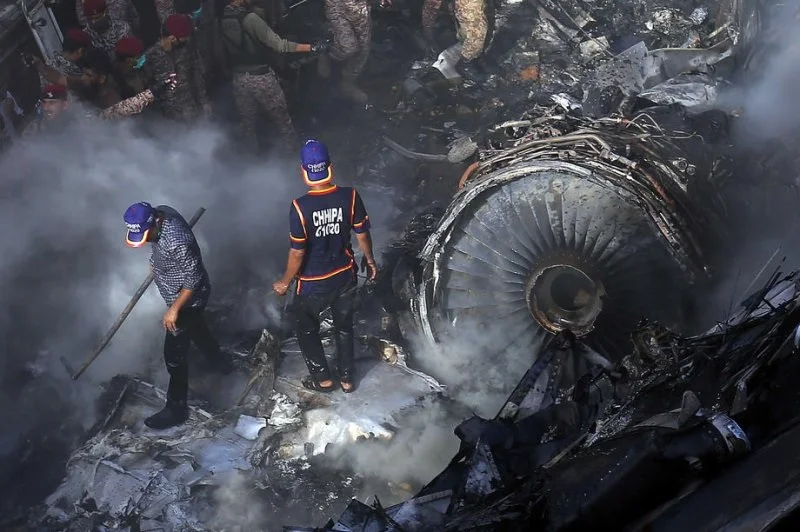A Crash, A Miracle, & The Man Who Lived To Tell The Tale
“Seat 1C” by Zafar Masud is a powerful memoir of survival, determination, and accountability after the tragic crash of Flight 8303. More than a personal story, it’s a wake-up call on aviation safety, systemic negligence, and the emotional toll of trauma. A must-read for those seeking inspiration and truth.

There are stories that grab you from the first sentence, that make you stop and think about the fragility of life, about the thin line between survival and tragedy. Seat 1C by Zafar Masud is one of those stories.
On May 22, 2020, a commercial flight crashed in Karachi. The impact should have meant the end for everyone on board. And yet, somehow, agai-nst all odds, Masud walked away from the wreck-age. My being alive was truly a miracle, he admits. But surviving a plane crash is only the beginning of his story.
What follows is an extraordinary account of resilience—not just physical survival, but the psychological journey that comes after. Masud does not spare the reader from the raw horror of the event. He recounts the ordeal of those few seconds before impact, the chilling voice re-cording of the cockpit’s final moments: “Pilot: Sir, Mayday, Mayday, Mayday, Pakistan 8303.” As the reader processes this, a chill runs down the spine. We can only imagine the author’s trauma upon listening to it.
He describes the plane’s “unrelenting descent” as “bizarre,” made all the more dangerous by “the presence of illegal high-rise buildings in Model Colony.” He calls the scene after impact “a scene from hell.” But this was no mere accident of fate. Masud highlights the systemic failures that led to the tragedy, writing that Flight 8303 was the sixth plane to crash in Pakistani airspace within a decade, and it was due to a function of systemic negligence. Standard operating procedures were ignored from takeoff, and critical callouts were not made. He argues that Pakistan’s aviation industry “would benefit from an injection of humility, an eagerness to consider the mistakes of the past, and a focus on passenger and crew safety.” With sharp sarcasm, he adds, “We can begin to take leadership training seriously.”

But Seat 1C is not just about blame—it is about what comes after. It is a deeply personal meditation on recovery and rehabilitation. Masud writes: “I realize that while it is imperative to have faith and to not let tragedy define you,” the road to healing is neither simple nor linear. He speaks candidly about emotional trauma, the weight of survivor’s guilt: “I struggled to attend funerals… I was given a miracle, when their loved ones were not.” In these moments, his honesty is devastating. The grief for those who were lost. The burden of being among the living. The questions that have no answers: Why me? What now?
And yet, there is a ray of light for anyone healing from life-changing trauma or suffering. He leads us through it, as though he himself is still discovering the shape of his survival, still making sense of the unthinkable. Masud challenges conventional ideas of resilience, “I have come to realize that boldness does not have to mean overt acts of heroism and bravery.

Infact, it may very well be the opposite… The simple act of asking for mental help when we most need it, even if this plea challenges some toxic ideas of masculinity.” It is in this quiet defiance, this willingness to be vulnerable, that true strength emerges.
Communication, too, became a part of his recovery. The crash, he writes, “brought me closer to my staff.” His heartfelt letter to the employees of the Bank of Punjab was a turning point, a “major breakthrough in creating a special bond with them.” It was a reminder that survival is not just about staying alive—it is about connection, about forging meaning in the aftermath of catastrophe.
The narrative is enriched with historical analogies, drawing parallels to wartime battles, legendary feats of endurance, and defining moments of resilience. While these references lend depth and a universal dimension to his experience, their effectiveness hinges on how naturally they align with his ordeal.
Masud’s story is gripping, deeply personal, and at times, almost unbelievable. But it’s real. And it’s a reminder that sometimes, survival is just the first chapter in a much larger journey—one that demands courage, reflection, and the willingness to rebuild.
By Aliya Agha. Published in Margalla Tribune on April 5, 2025